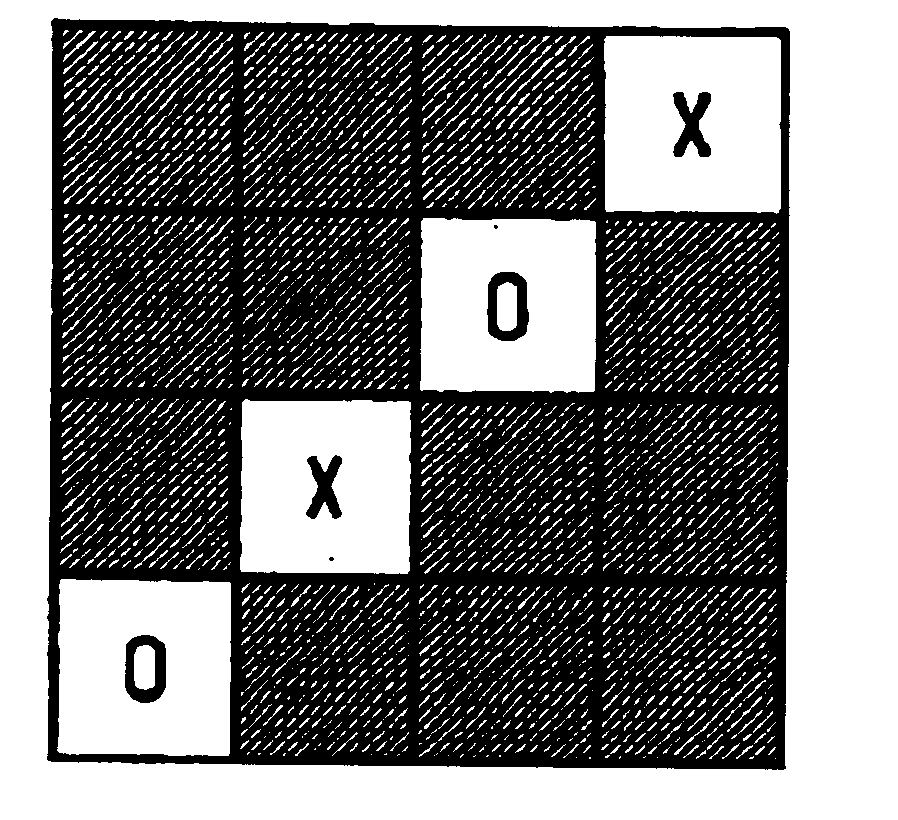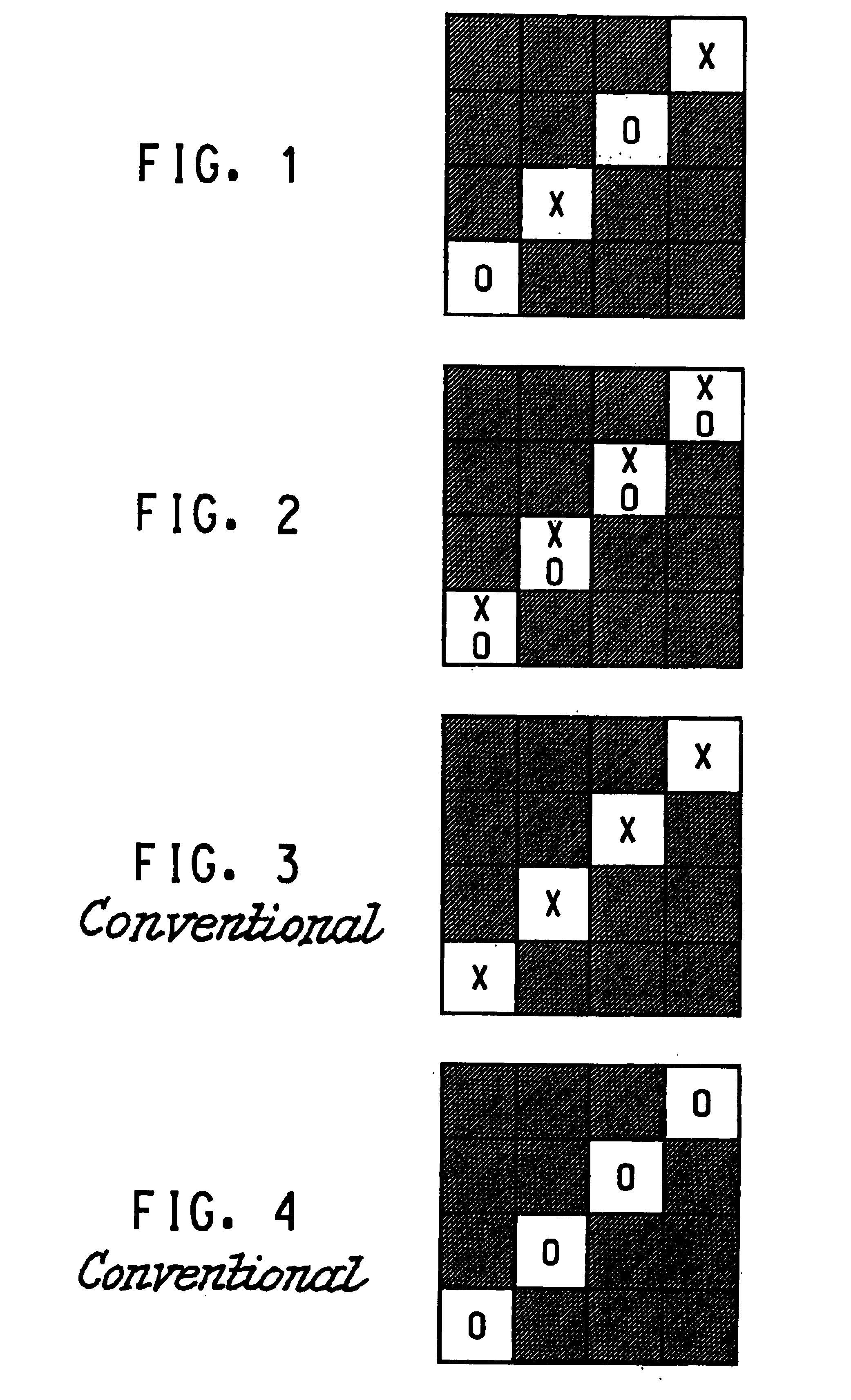Weft-stretch woven fabric with high recovery
a woven fabric and high recovery technology, applied in the field of weftstretch woven fabrics, can solve the problems of fabric with lower unload power being undetectable in use, unable to meet the needs of a wide range of uses, and fabrics disclosed in these references are not sufficiently recovered
- Summary
- Abstract
- Description
- Claims
- Application Information
AI Technical Summary
Benefits of technology
Problems solved by technology
Method used
Image
Examples
Embodiment Construction
Fabrics were woven on a Dornier airjet loom using a warp of 18 / 1 cc cotton at a greige warp count of 96 ends / inch (38 ends / cm) and weft yarns of 36 cc cotton and / or 150 denier (167 dtex) T-400 poly(ethylene terephthalate) / / poly(trimethylene terephthalate) bicomponent fiber (E. I. du Pont de Nemours and Company) having an after heat-set crimp contraction value of 39%. Samples 1 and 2 were woven following the lift plan of FIG. 1, and Samples 3 and 4 were woven following the lift plan of FIG. 2. Samples 3 and 4 differed from each other in that the polyester bicomponent filament package and the cotton package were exchanged on the loom so that the order of yarn insertion was reversed. Comparison Samples 1 and 2, which were also 3 / 1 twills, were woven following the lift plans of FIGS. 3 and 4, respectively. The loom conditions were the same for all the fabrics. After weaving, the fabrics were jet-scoured at 180.degree. F. (82.degree. C.) for 30 min, jet-dyed with a disperse dye at 265.de...
PUM
| Property | Measurement | Unit |
|---|---|---|
| weft elongation | aaaaa | aaaaa |
| warp elongation | aaaaa | aaaaa |
| weft elongation | aaaaa | aaaaa |
Abstract
Description
Claims
Application Information
 Login to View More
Login to View More - R&D
- Intellectual Property
- Life Sciences
- Materials
- Tech Scout
- Unparalleled Data Quality
- Higher Quality Content
- 60% Fewer Hallucinations
Browse by: Latest US Patents, China's latest patents, Technical Efficacy Thesaurus, Application Domain, Technology Topic, Popular Technical Reports.
© 2025 PatSnap. All rights reserved.Legal|Privacy policy|Modern Slavery Act Transparency Statement|Sitemap|About US| Contact US: help@patsnap.com


